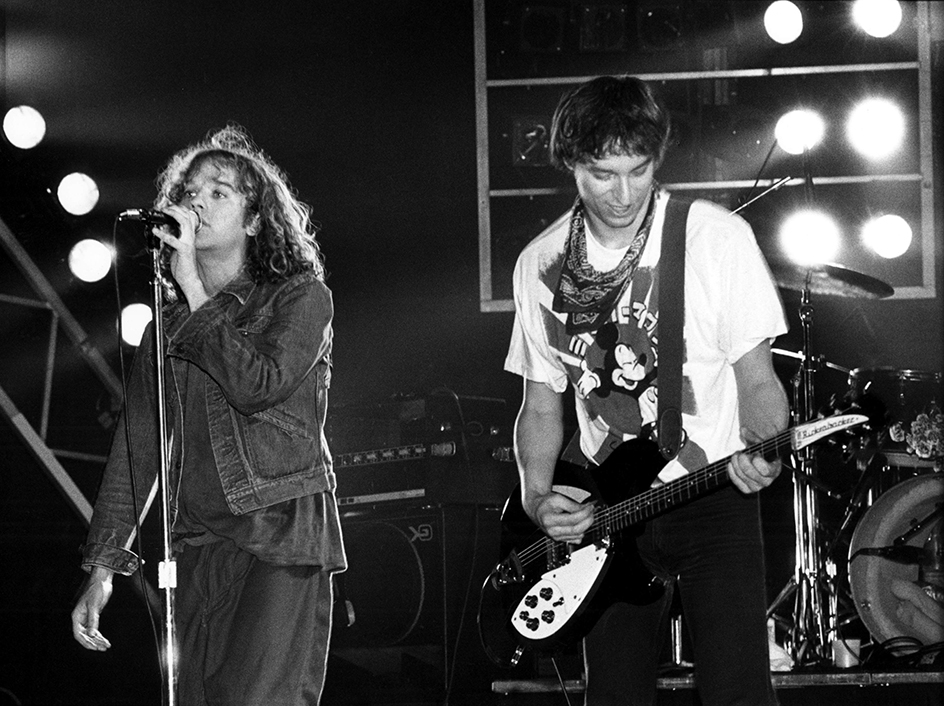R.E.M., an American rock group, was one of the first popular alternative rock bands in the 1980’s. Alternative rock got its name because it was considered an alternative to mainstream rock that was played on the radio. The group became known for its jangly guitar sound and mumbled vocals.

R.E.M. was formed in Athens, Georgia, in 1980 by lead singer Michael Stipe (1960-…), guitarist Peter Buck (1956-…), bassist Mike Mills (1958-…), and drummer Bill Berry (1958-…). Stipe named the band by randomly selecting the acronym out of a dictionary. The initials REM typically refer to a state of sleep known as rapid eye movement sleep. But they have no special significance for the band.
R.E.M.’s first single, “Radio Free Europe,” was released in 1981 to critical acclaim. The group released its first EP, Chronic Town, in 1982. EP stands for extended play and is a type of musical recording that includes several songs but is not considered a full-length album. Chronic Town and R.E.M.’s first full-length album, Murmur (1983), also won praise from critics. R.E.M. greatly benefited from college radio support, and the group soon gained widespread popularity.
R.E.M.’s other hits of the 1980’s included “So. Central Rain (I’m Sorry)” (1984); “Driver 8” (1985); “Fall on Me” (1986); “The One I Love” and “It’s the End of the World as We Know It (And I Feel Fine)” (both 1987); “Orange Crush” (1988); and “Stand” (1989). Among the band’s later hits were “Losing My Religion” (1991); “Shiny Happy People” (with Kate Pierson from the band the B-52’s, 1991); “Drive” and “Man on the Moon” (both 1992); “Everybody Hurts” (1993); and “What’s the Frequency, Kenneth?” and “Bang and Blame” (both 1994).
Berry retired in 1997. The band continued as a trio, using various drummers at its concerts. R.E.M. was inducted into the Rock and Roll Hall of Fame in 2007. The group disbanded in 2011.
See also Rock music (New wave and mainstream rock) .
